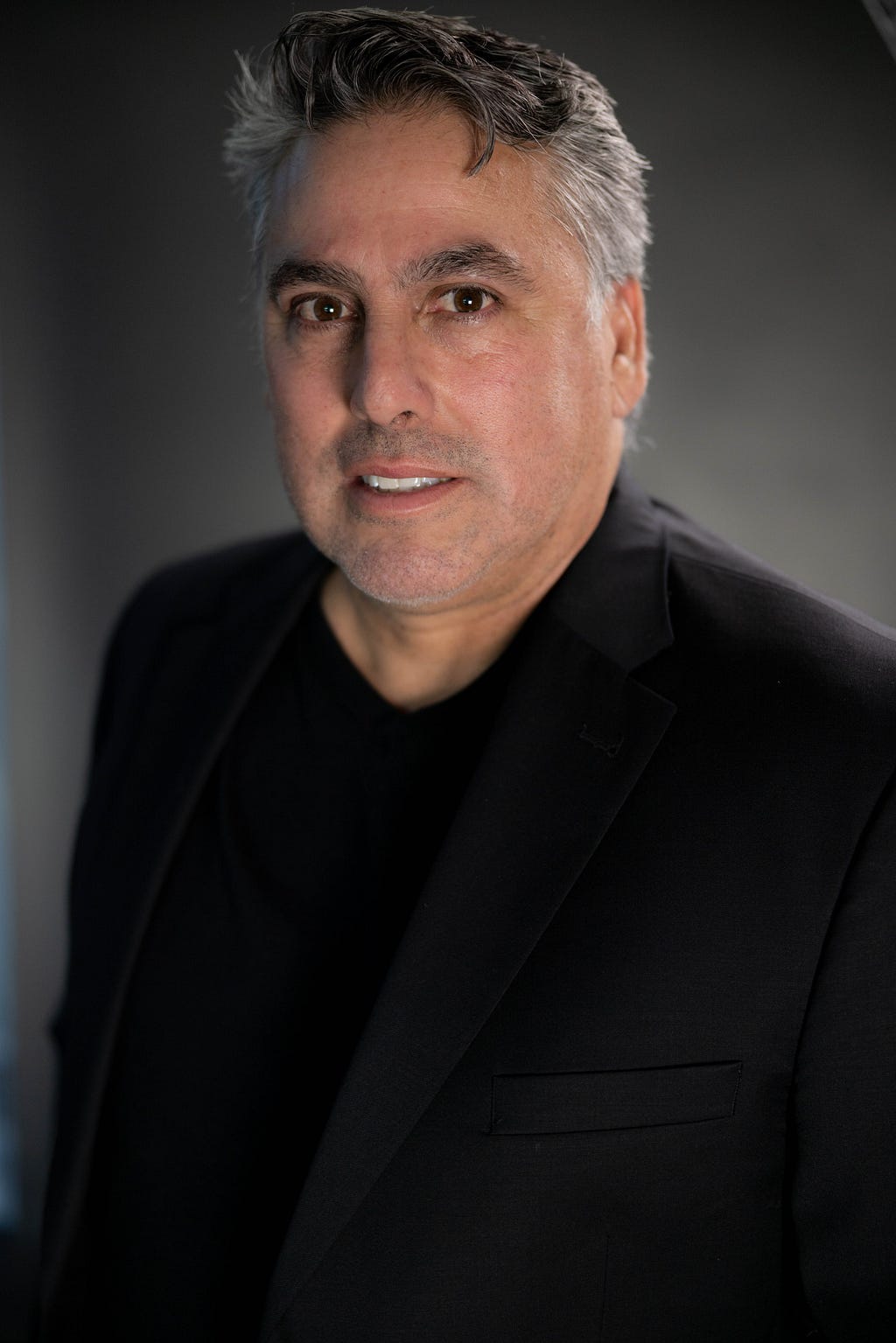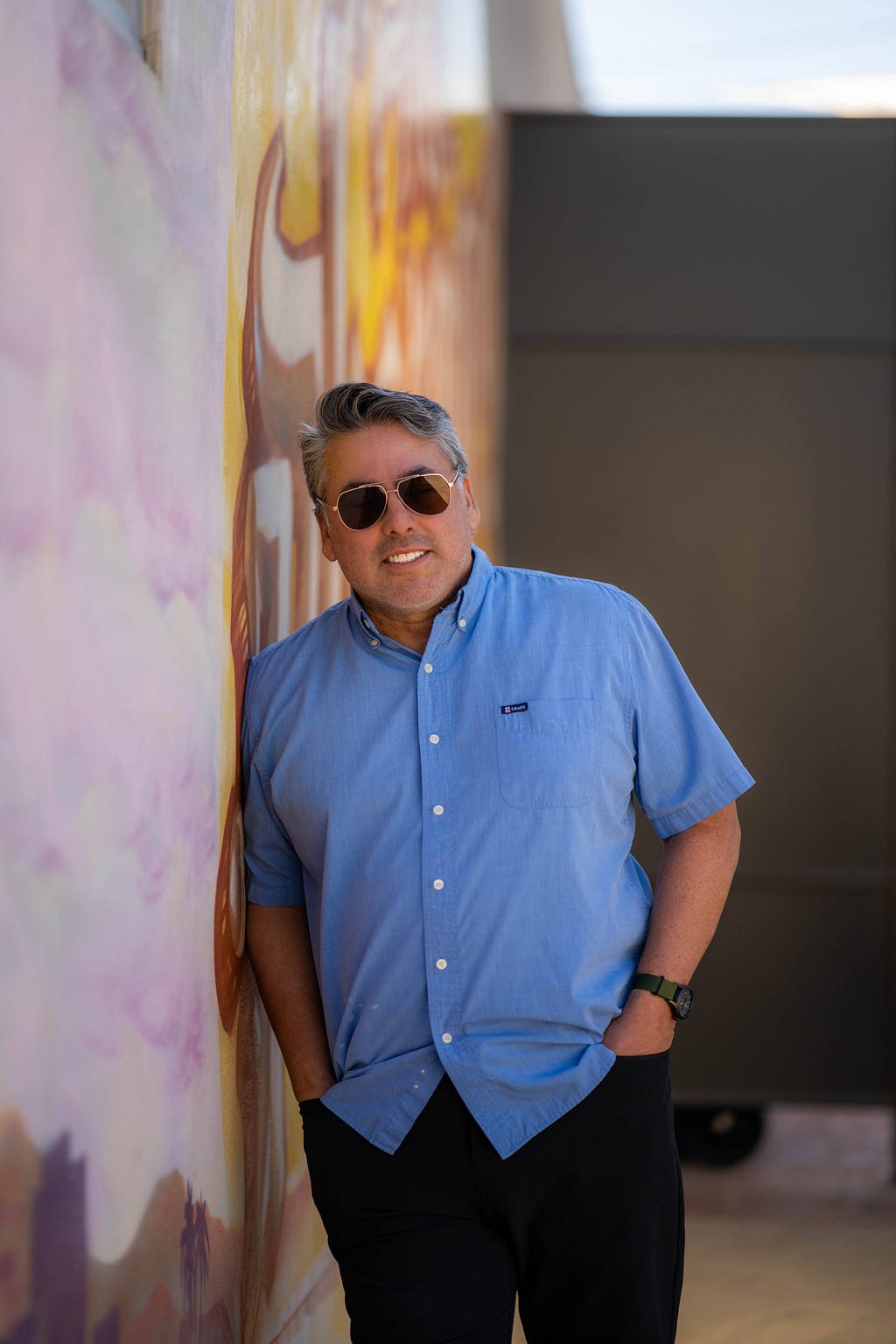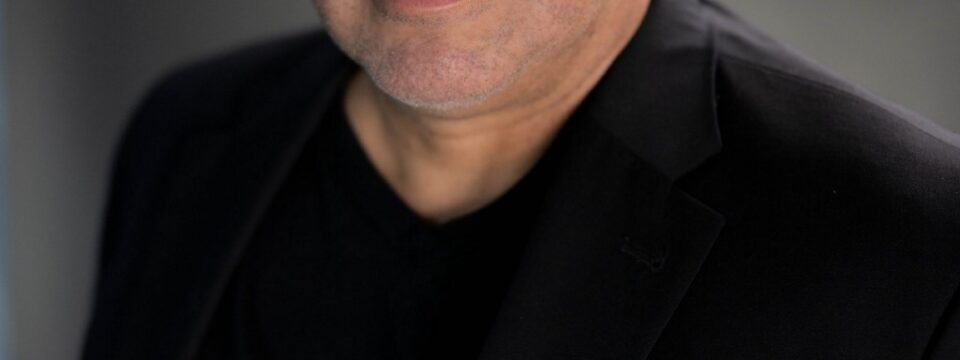Simon Balderas of WonderMouse Studios: 5 Things I Wish Someone Told Me When I First Became A Filmmaker

Don’t seek the approval of others. If you are not entertained and pleased by what you create, then you might want to rethink what you are doing. Part of the process to becoming a fulfilled person is to authentically and passionately put yourself into what you create. We all have a unique signature. Don’t be afraid to make your mark and be criticized by others. Most likely the criticism is coming from a person who is insecure about themselves.
As a part of our series called “5 Things I Wish Someone Told Me When I First Became A Filmmaker”, I had the distinct pleasure of interviewing Simon Balderas of WonderMouse Studios.
Simon is a Native American film maker, seasoned and self-directed, creative with the ability to bring complex stories to life with a unique and highly visual affection. He communicates sophisticated concepts into beautiful and consistent visual poetry that utilizes lyrical and emotional conventions. At a very young age, Simon became an adept photographer eventually leading him to study critical film studies at the University of California at Santa Barbara. His immersive approach has gained him an impressive array of skills that few possess, becoming an accomplished Director/Producer/Writer/Editor/DOP. Over the years, he has demonstrated the ability to deliver projects with extraordinary cinematic results.
Thank you so much for doing this interview with us! Before we dive in, our readers would love to get to know you a bit. Can you share your “backstory” that brought you to this career?
My interest in storytelling began when I was a young boy living on the fringe of a middle class neighborhood in the 80s. I was the kid in class that you might find staring out the window daydreaming and often playing alone, pretending that I was an astronaut exploring another planet, a detective trying to solve a mystery or playing out some other make believe scenario. I was always a keen observer and when my older brother gave me an old 35mm camera with a long lens, I began bringing it to school with me to take candid photos of all sorts of things and developing them in a darkroom that my brother had access to at his school. At first, I worked within the confines of what was available, like using simple 8mm film cameras and still cameras that I could get second hand. If I needed money for film and developing, I would deliver newspapers, mow lawns, go door to door washing cars, etc. I did what I needed to do. By the time I was in high school, I was already an adept photographer. Eventually I became a high school newspaper photographer and had an endless supply of film rolls and free developing. Using old cameras and makeshift equipment led me into film school where I learned to get people excited about the story we were making. I made two award-winning films when I was there that helped me land my first job as an editor when I graduated. I never felt restricted with the equipment that I would often hear the students complain about. I learned early on to be resourceful. While in film school, I lived on the street for years in my old VW van in order to afford film stock and rent gear. This was old hat to me. My 7 brothers and sisters and I had lived in a very small house sharing everything, so I was just happy to have my own space. I recall many nights sneaking into the university pool to swim laps, then I would stare up at the stars dreaming of the creative projects that I was working on and ones that I wanted to create.
It has been said that our mistakes can be our greatest teachers. Can you share a story about the funniest mistake you made when you were first starting? Can you tell us what lesson you learned from that?
Making mistakes is a key part of the learning process. I’ve made plenty of them. I once shot an important documentary interview entirely in slow motion. The crew and I were being rushed and I was wearing too many hats that day and succumbed to the pressure by not checking all of my frame rate settings. Even though I had done this task hundreds of times I lost my way in that moment giving way to the pressure. It taught me not to get caught up in the moment no matter how much hysteria is going on around me, I needed to focus on my duties and not forget my responsibilities and the ultimate purpose of what we are trying to achieve.
Who are some of the most interesting people you have interacted with? What was that like? Do you have any stories?
I am so thankful for the opportunity I have had to work with some amazing high-achieving people. While working with AMC, American Movie Classics, on a series called “Behind the Screen,” I was assigned to interview some of the most influential actors, directors and producers, both contemporary and from Hollywood’s “Golden Era.” Speaking with people like Jane Russell, Ernest Borgnine, Robert Wise, Sydney Pollack, Tippi Hedren, William Friedken, Milton Berle, to name a few. I was given the liberty to ask many curious questions and was given answers that often surprised me. My biggest take away from these moments was realizing that although they were all incredible talents, that they were also human beings just like all of us. The main difference of separation that I discovered is that not only did they have the courage to dream big, they also took the risks to achieve them. What further separated them from others is that many of them failed time and time again before they achieved any success. Their countless failures never overshadowed their willingness to get back up and try again.
Which people in history inspire you the most? Why?
Alanis Obomsawin, OC, GOQ, filmmaker, singer, artist, storyteller. One of Canada’s most distinguished documentary filmmakers, Alanis Obomsawin began her career as a professional singer and storyteller before joining the National Film Board of Canada (NFB) in 1967. Her award-winning films address the struggles of Indigenous peoples in Canada from their perspective, giving prominence to voices that have long fallen on deaf ears. An Officer of the Order of Canada and a Grand Officer of the National Order of Québec, she has received the Prix Albert-Tessier and the Canadian Screen Awards’ Humanitarian Award, as well as multiple Governor General’s Awards, lifetime achievement awards and honorary degrees.”
Let’s now shift to the main focus of our interview, how are you using your success to bring goodness to the world? Can you share with us the meaningful or exciting social impact causes you are working on right now?
I remember watching the 3rd season of CBC’s Anne with an E with my daughter.
Indigenous characters were introduced, along with a storyline about residential schools. This immediately struck a chord within me knowing that my grandfather attended one of those “so-called schools” and came out unable to read or write. His assimilation into American society stripped him of his Native Apache language and culture. Such schools achieved the intentions of their creators resulting in generations of Native American descendants, like me, who have lost their cultural connection altogether. My interest in storytelling has always been an obvious factor in my life, but little do people know that it was a compensation for the void of my own life. It’s the part of my family history that ended when my grandfather was stripped of his own heritage. This has had its ramifications generations down the line. Growing up, I always knew my grandfather could not read or write. I just never knew why. He spoke about the “Indian School” from time to time and it was an obvious source of pain for him, so I never pressed. When my mother explained the facts of our past to me, it sadly created a void in my own life that I have always sought to fill. Many of the stories I have written and seek to tell are an effort to reverse the assimilation that my ancestors have experienced. I now carry the responsibility to revive this heritage that my ancestors were once so proud.
Many of us have ideas, dreams, and passions, but never manifest it. But you did. Was there an “Aha Moment” that made you decide that you were actually going to step up and take action for this cause? What was that final trigger?
When I made my first feature film at age 26 entitled “Little Heart” about an young immigrant man from Mexico who aspired to go to medical school, I had few contacts in the movie industry and little money to spare. While writing the script I never considered that the film would not be made. In fact, once I completed the script, I proceeded each and every day as if the film was fully funded by casting, obtaining crew and setting locations. Some might have called me naive at the time, but when thoughts of self-doubt naturally entered into my mind, I would take these moments to remind myself that I had a choice to believe in those voices or not. I did due diligence and sent out many press releases and spoke to as many potentially-interested people that presented themselves to me as I could. I was able to gain a small article in a local newspaper about my endeavors which led to several more. When an article about my project appeared on the front page of the Los Angeles Times entertainment section, things really started to happen. Before I knew it, my film, although very low budget, was funded by the kindness of strangers. At the time I didn’t even know what the term “manifested” meant and it didn’t matter. What was most important was putting one foot in front of the other without looking back until I arrived at the destination point.
Can you tell us a story about a particular individual who was impacted or helped by your cause?
When my wife and producing partner, Lori Balderas, met with Buffy Andrade Castillo, a local Native American woman (Luiseno Tribe), about producing a documentary project about the tragic death of her mother, we both soon realized that we had met someone quite special. As we peeled back the layers, we quickly discovered a rich story that we felt needed to be told as a narrative film. As a Native American man who has always viewed my heritage as lost, I found Buffy’s rich cultural upbringing inspiring me to reconnect the dots in my own life. Writing the screenplay “Buffalo” was the experience I needed to awaken the importance of embracing my own cultural heritage.
Are there three things that individuals, society or the government can do to support you in this effort?
There are so many stories that deserve to be told. Because the art of filmmaking often requires many resources and much collaboration, I would be remiss if I did not seek to be supported financially. Like any other investment there is always risk involved, but if there is a story that resonates with you and you believe that needs to be told, then I encourage your financial support. The rewards of supporting a just cause are innumerable including financially. From solar power to mental illness awareness there are entire industries generated by social and environmental causes aiming to make the world a better place. Like in Canada, I would love to see more governmental grants offered to filmmakers focused on these various issues, because this medium does much to inspire people to find solutions for even the direst problems in our world. When individuals rise up and support the arts, even the smallest gesture makes a difference. I encourage those individuals with any means to peruse the various crowdfunding sites or be inspired by articles such as this to give when they find a story of interest and feel their heartstrings tugging.

What are your “5 things I wish someone told me when I first started” and why. Please share a story or example for each.
- Trust your Gut. I’ve had countless moments in my life where I can say I would have, could have, should have. Whether it was an original idea that came to my mind or a reaction to a situation, I know now to always do a gut check before I take initiative or respond to a circumstance. Nine times out of 10 your initial feeling about something is correct.
- Don’t wait to be discovered. Your time is now! Don’t wait until that one thing happens, because most likely it never will.
- Put your family first. Having drive is a good thing but, in the end, remember what is most important in life. You won’t be remembered for all the things you acquired, but you will be for all the lives that you have touched.
- Don’t be intimidated by trumpets. I am a naturally shy person and have a tendency to shrink back when someone boldly takes over. Remember your thoughts, feelings and ideas are just as important. It’s up to you to stand up for them.
- Don’t seek the approval of others. If you are not entertained and pleased by what you create, then you might want to rethink what you are doing. Part of the process to becoming a fulfilled person is to authentically and passionately put yourself into what you create. We all have a unique signature. Don’t be afraid to make your mark and be criticized by others. Most likely the criticism is coming from a person who is insecure about themselves.
If you could tell other young people one thing about why they should consider making a positive impact on our environment or society, like you, what would you tell them?
Be authentic. Trust your gut and remember what your mother told you about doing the right thing. Listening to your inner voice will help you become more genuine. If you are at a point in your life where you are unhappy, remember that there is a you at your core that wants to and has a need to come out. If you spend your time imitating other people and striving for the things that everyone seems to have but you don’t, please understand that those things will never fulfill you. If your inner voice is faint and hard to hear, make a concerted effort to stop, be quiet and listen to that ever-so-faint voice speaking to you. More than likely, it is yearning to be heard, yearning to be fed and yearning to express. That voice is you and you deserve to become all that you can be.
We are very blessed that many other Social Impact Heroes read this column. Is there a person in the world, or in the US, whom you would like to collaborate with, and why? He or she might see this. 🙂
Robert Rodriguez. The first time I heard about him donating his blood and body for scientific study in efforts to raise money for his film “El Mariachi,” I knew this was a man I could relate to. At that time, I was working at a state mental hospital, working with the criminally insane, trying to raise money for my first feature. If you are passionate about something, oftentimes it requires extreme effort. Don’t be afraid to follow your heart and be prepared to do what it takes. Since Robert’s film “El Mariachi,” he has gone on to direct, edit and produce some of the most iconic films in Hollywood. My film, “The Runner,” recently had its world premiere at the LA SKINS FEST at the TCL Chinese Theater in Hollywood. It was so encouraging to see that Robert’s company, Bad Robot, was a proud sponsor of indigenous films. I would love to meet and work with him some day.
Can you please give us your favorite “Life Lesson Quote”? Can you share how that was relevant to you in your life?
“Failure is a stepping stone to success.” If you find yourself beaten up and knocked down, it may not be your fault, but it is your choice to get back up. We learn so much about ourselves in defeat and everyday is another opportunity to achieve.
How can our readers follow you online?
Please check out our website at www.wondermouse.us where you will find information on our current and past projects. Fill out a contact form and we will get back to each and every one who reaches out.
This was great, thank you so much for sharing your story and doing this with us. We wish you continued success!
Simon Balderas of WonderMouse Studios: 5 Things I Wish Someone Told Me When I First Became A… was originally published in Authority Magazine on Medium, where people are continuing the conversation by highlighting and responding to this story.
